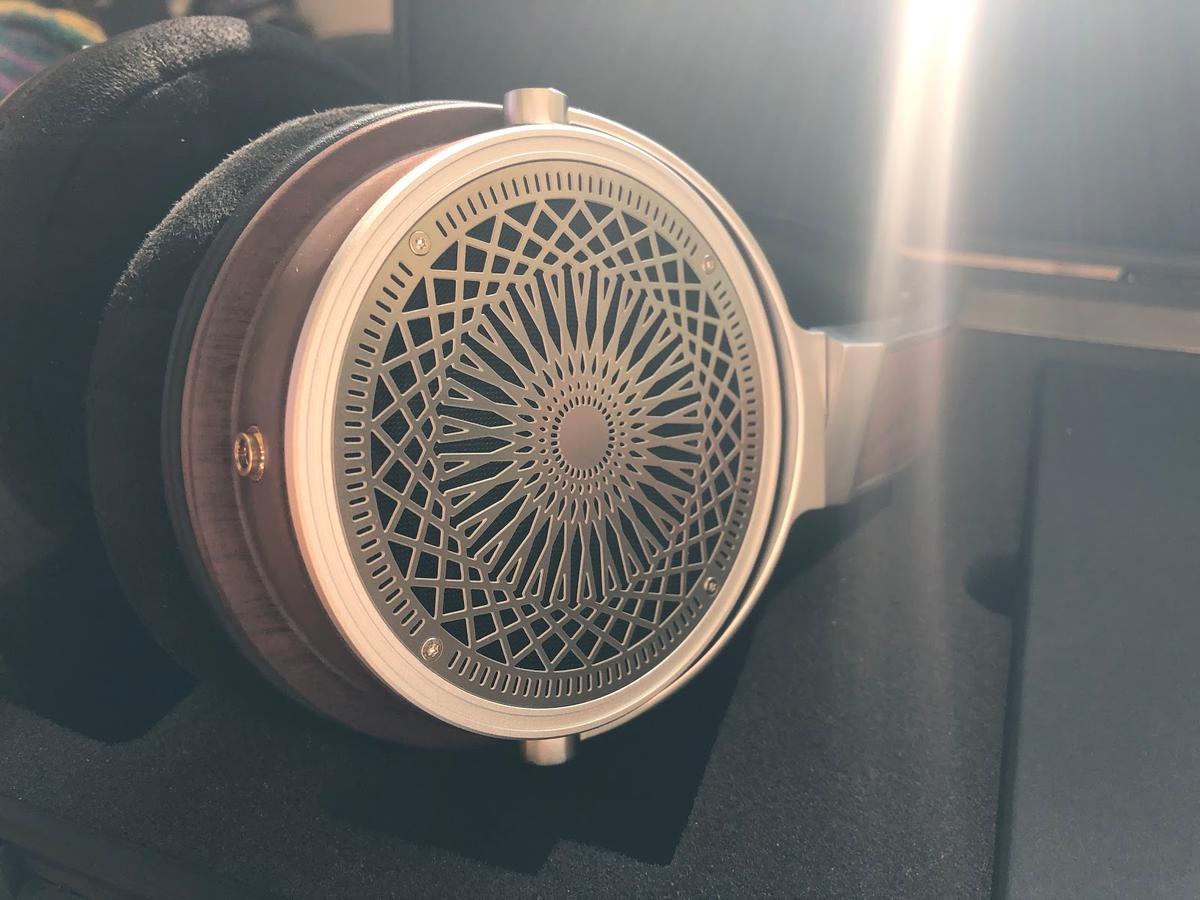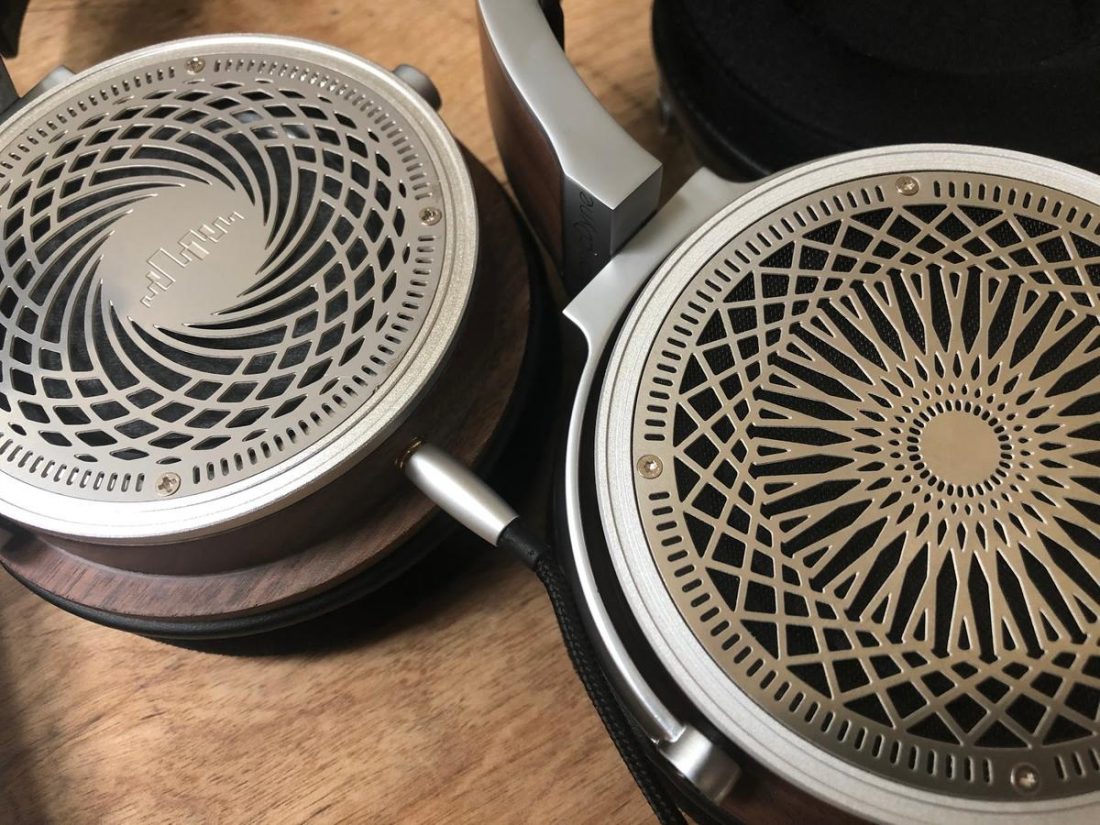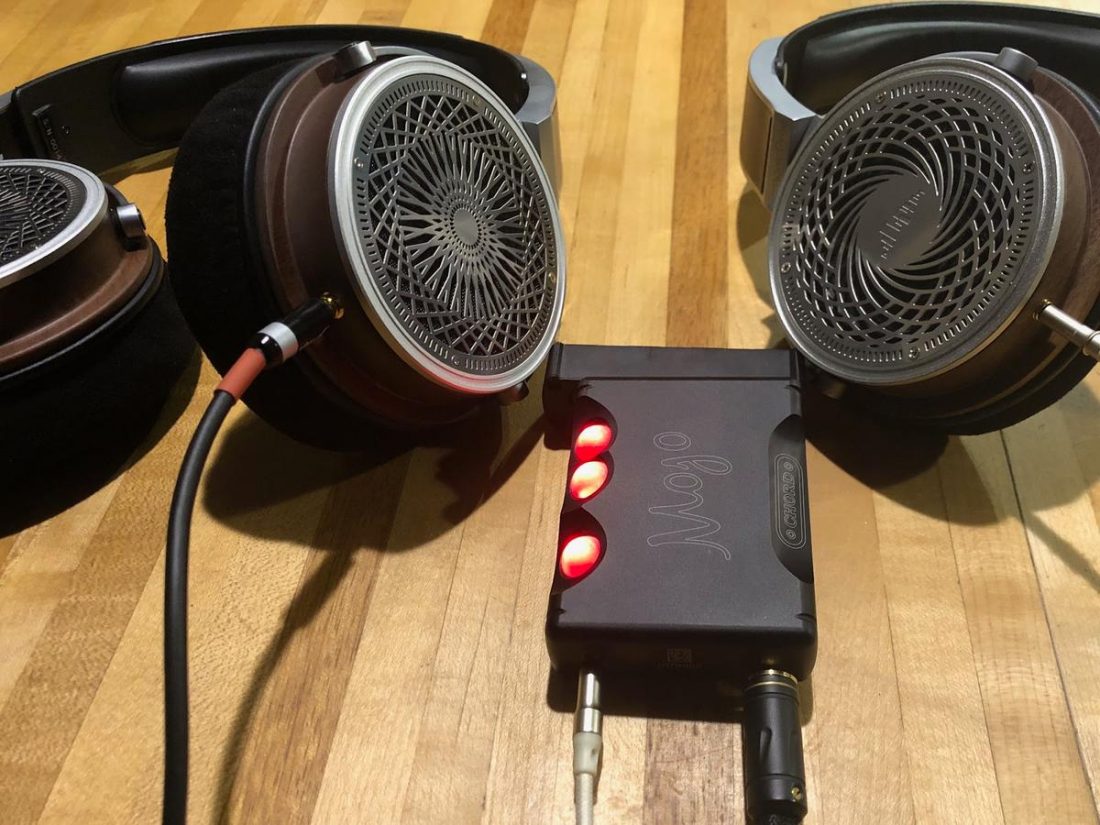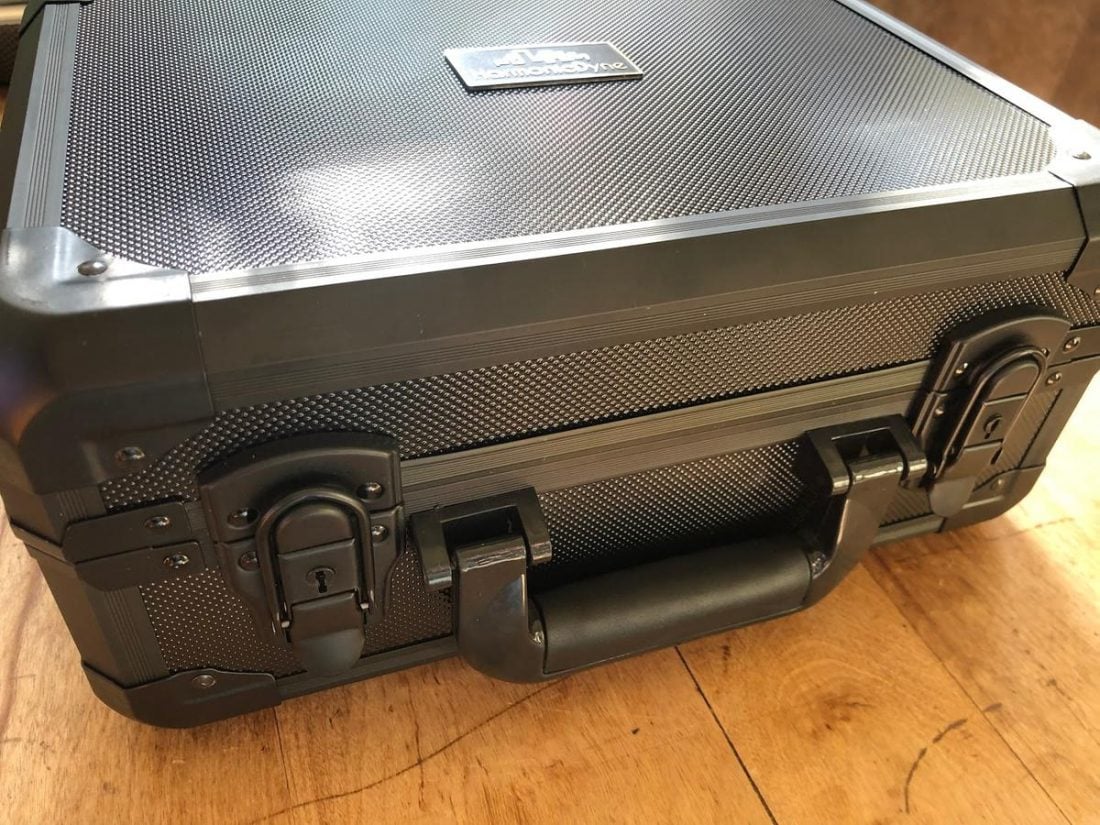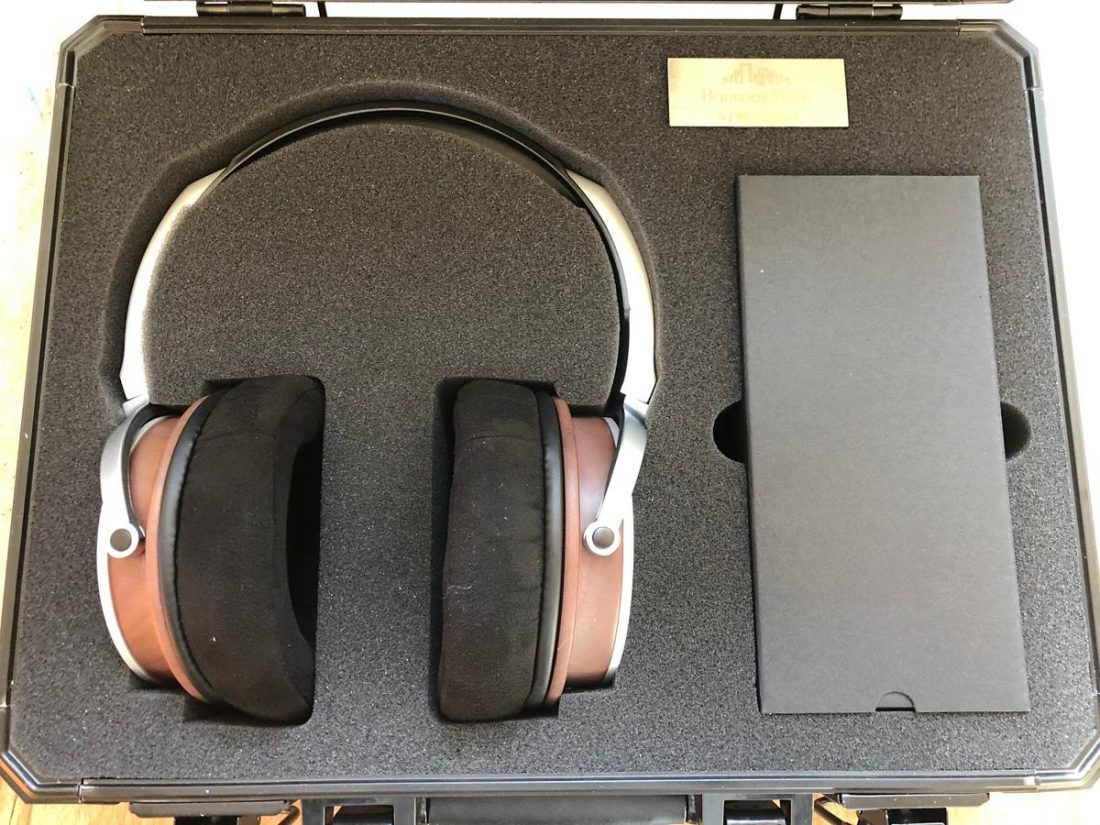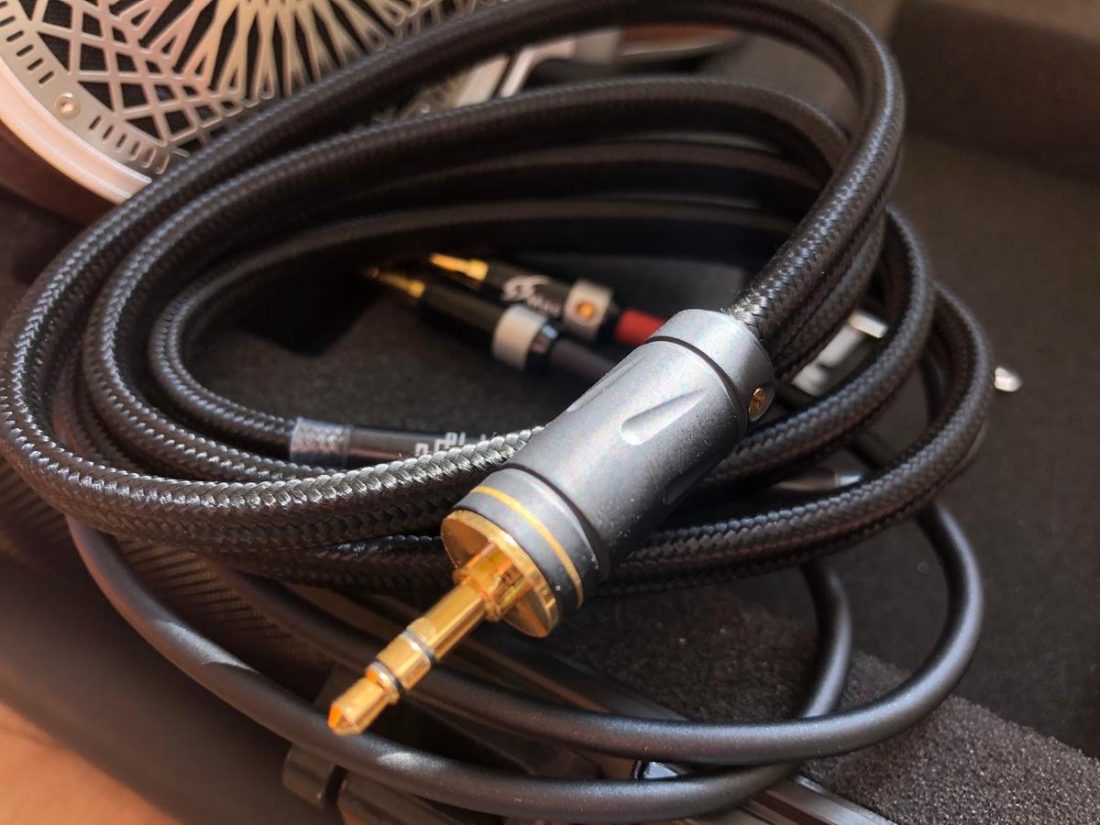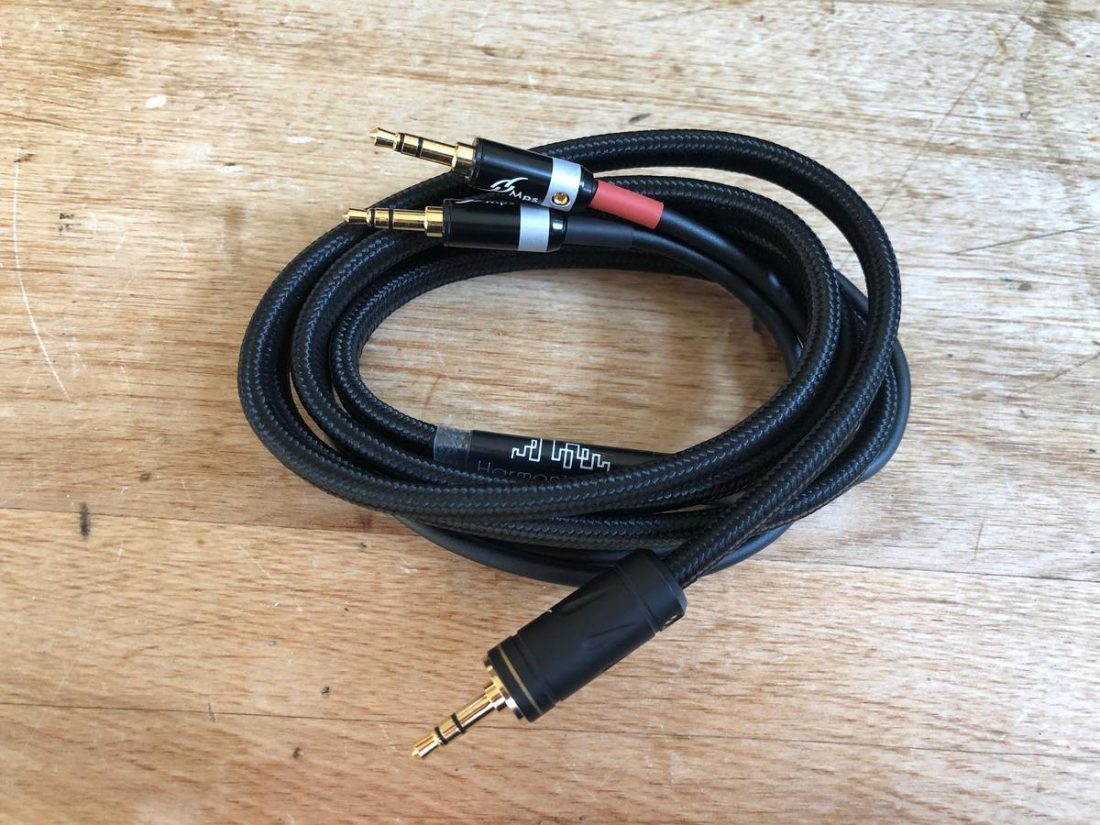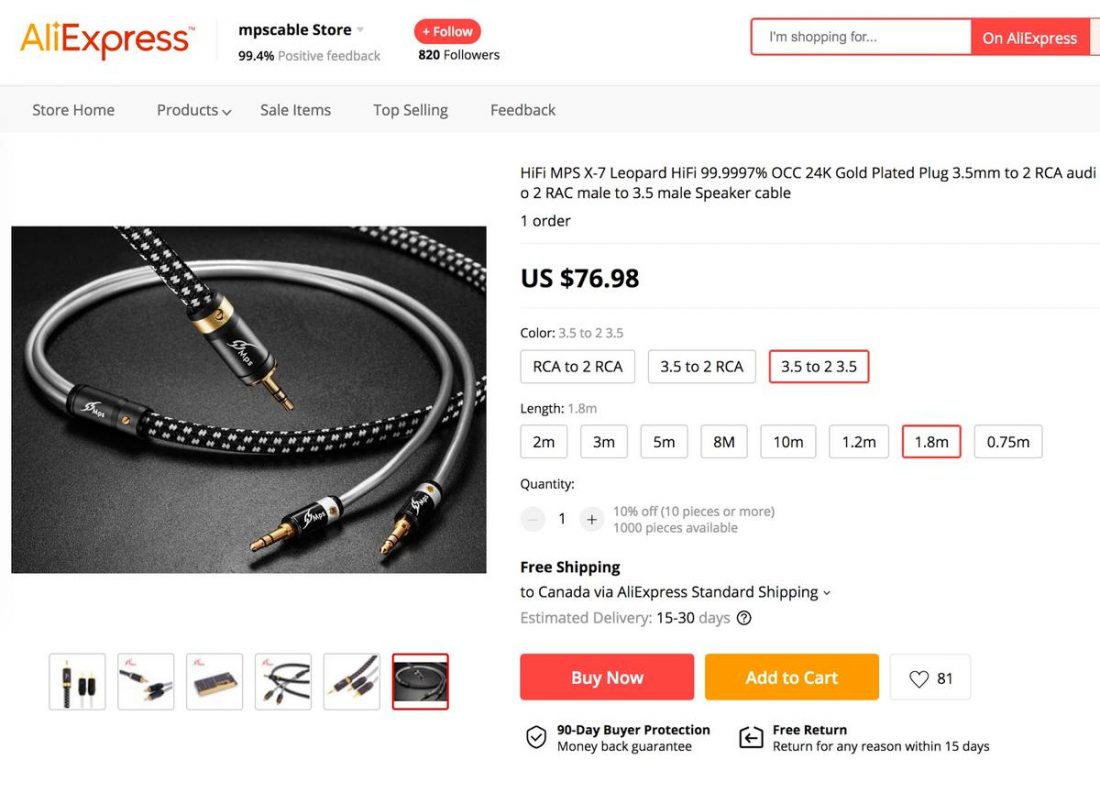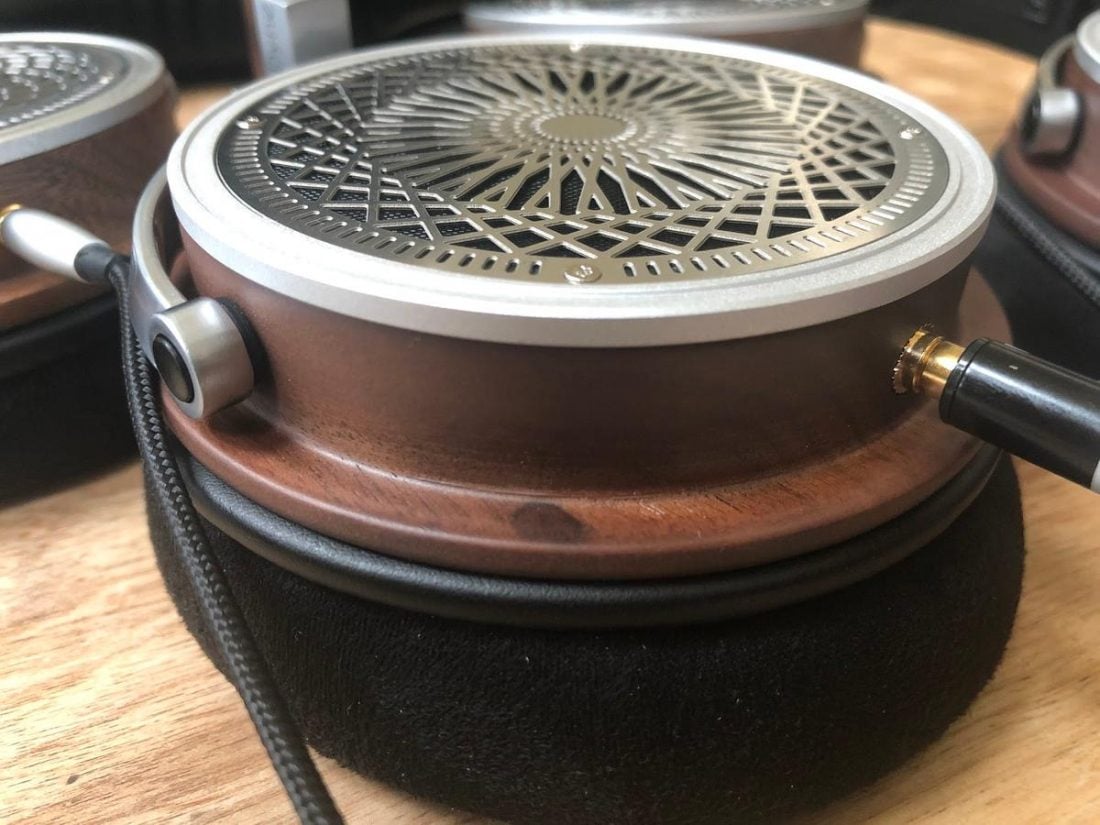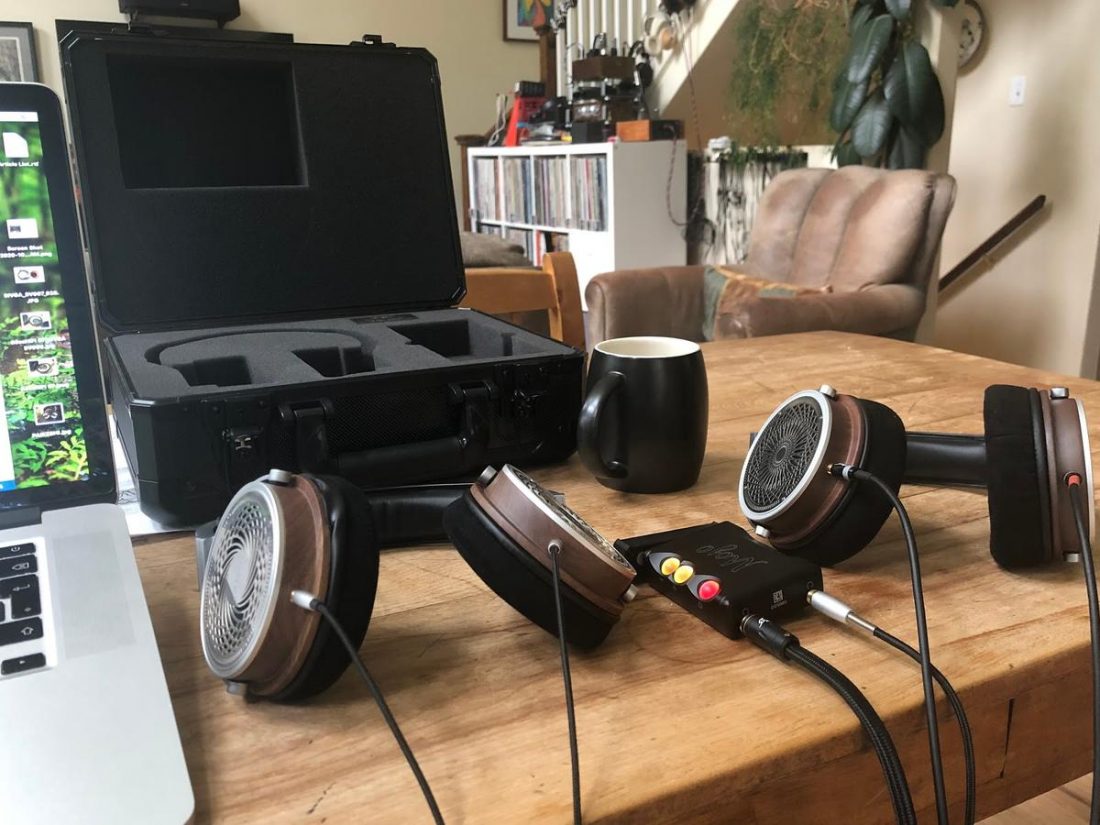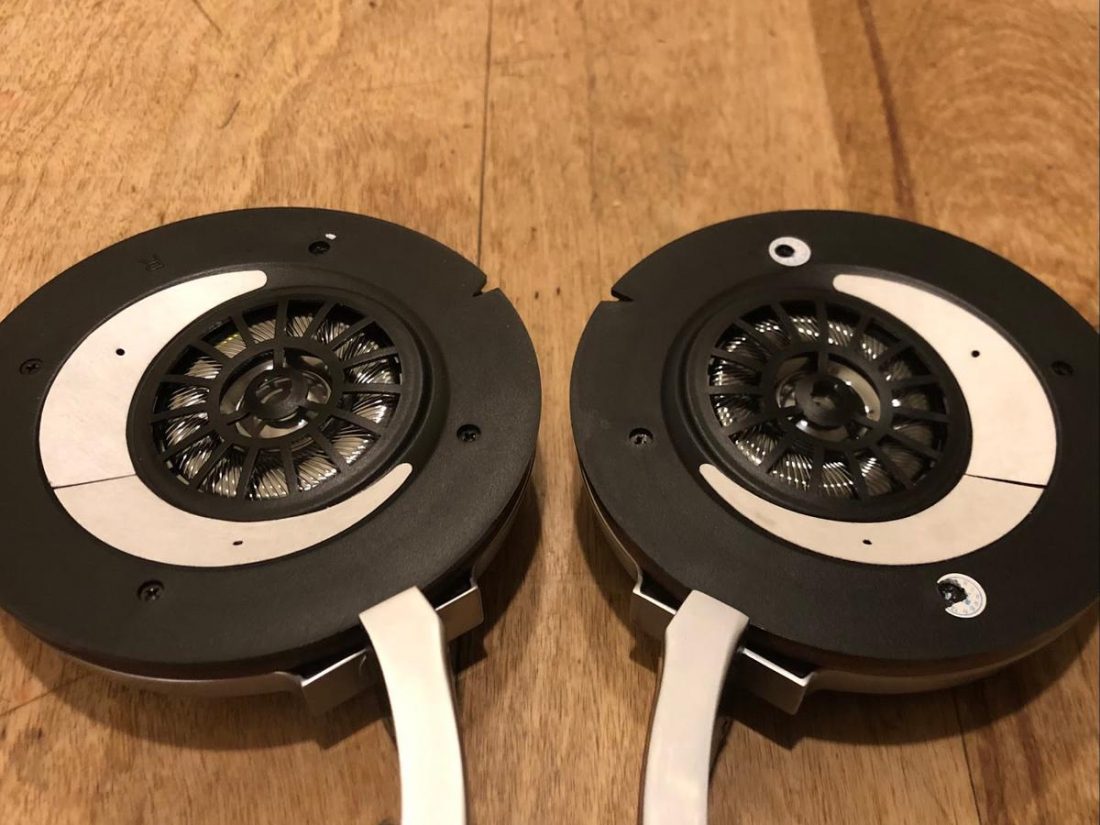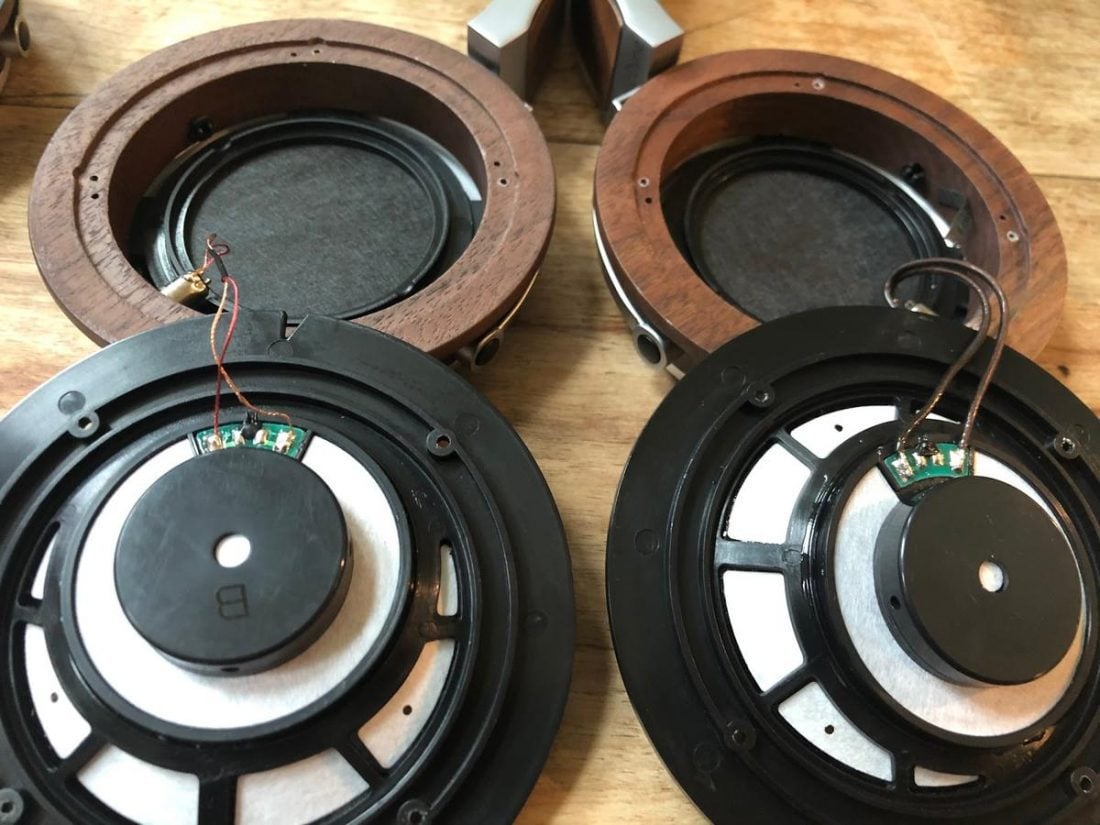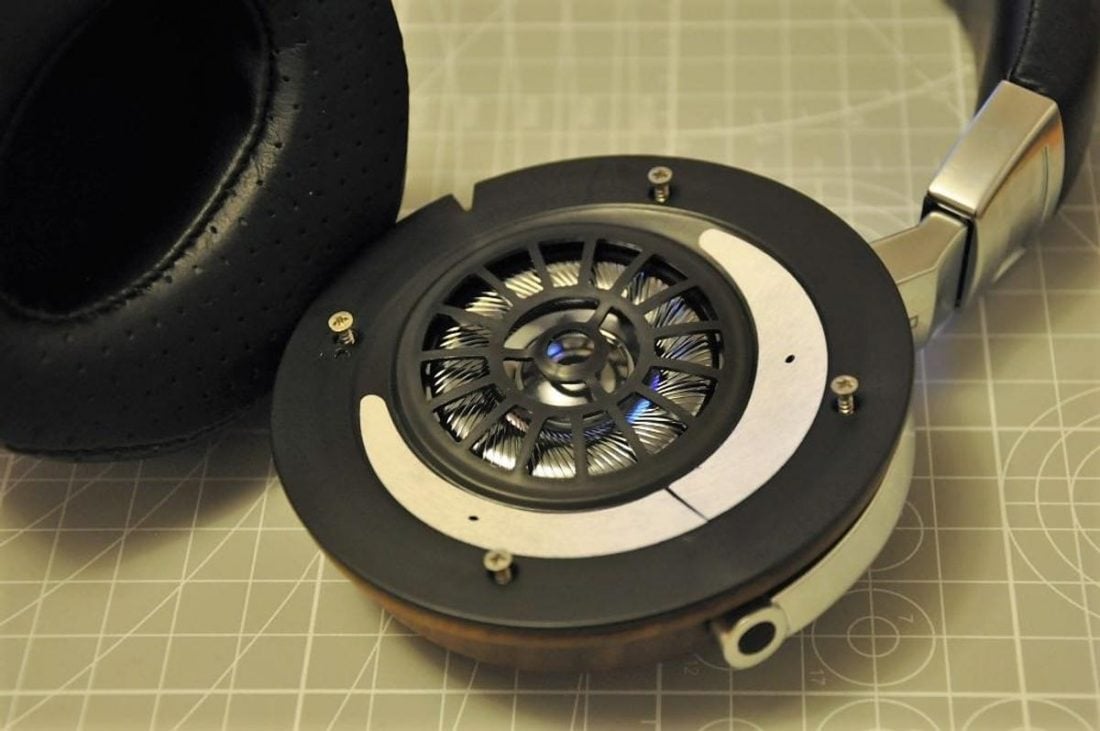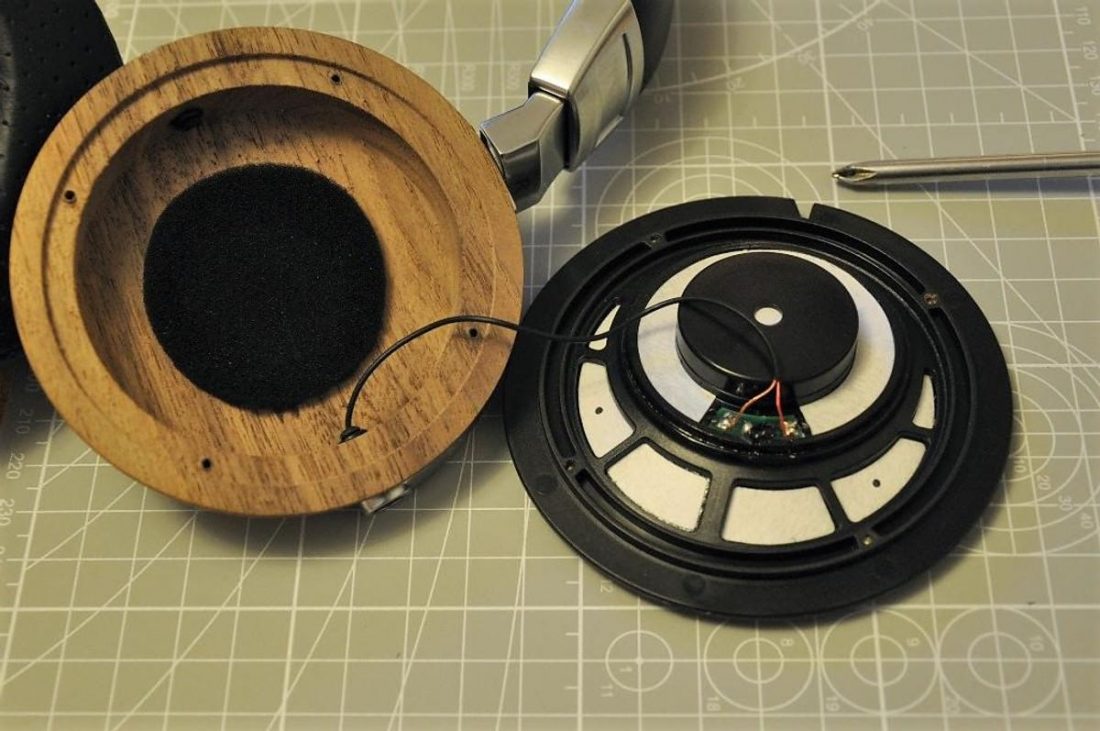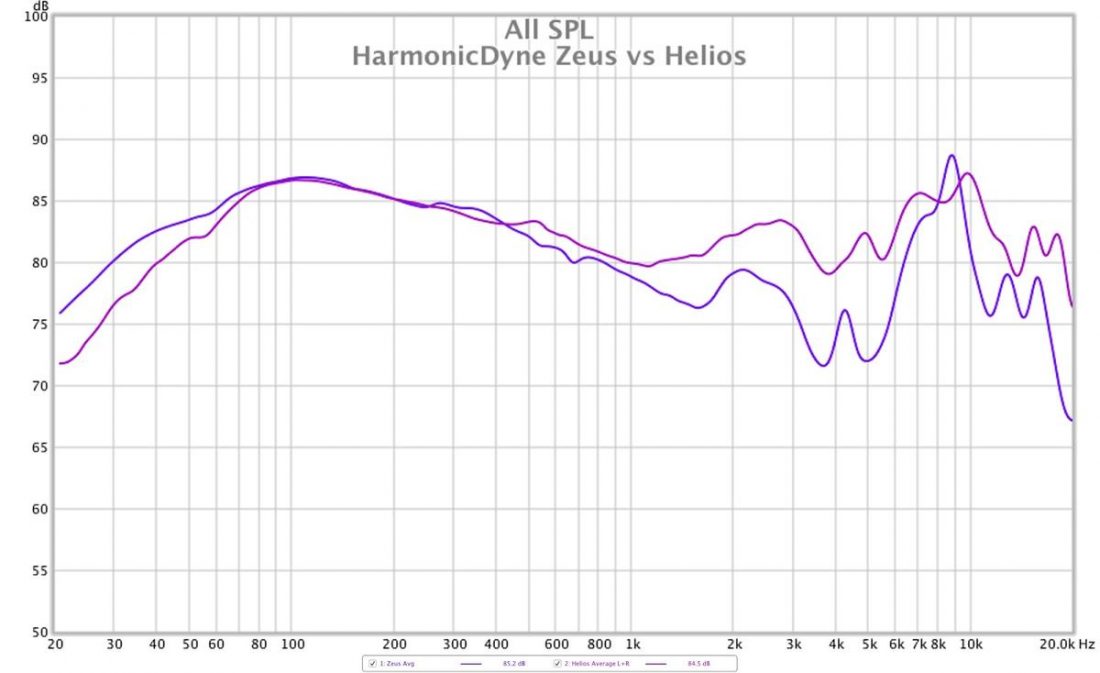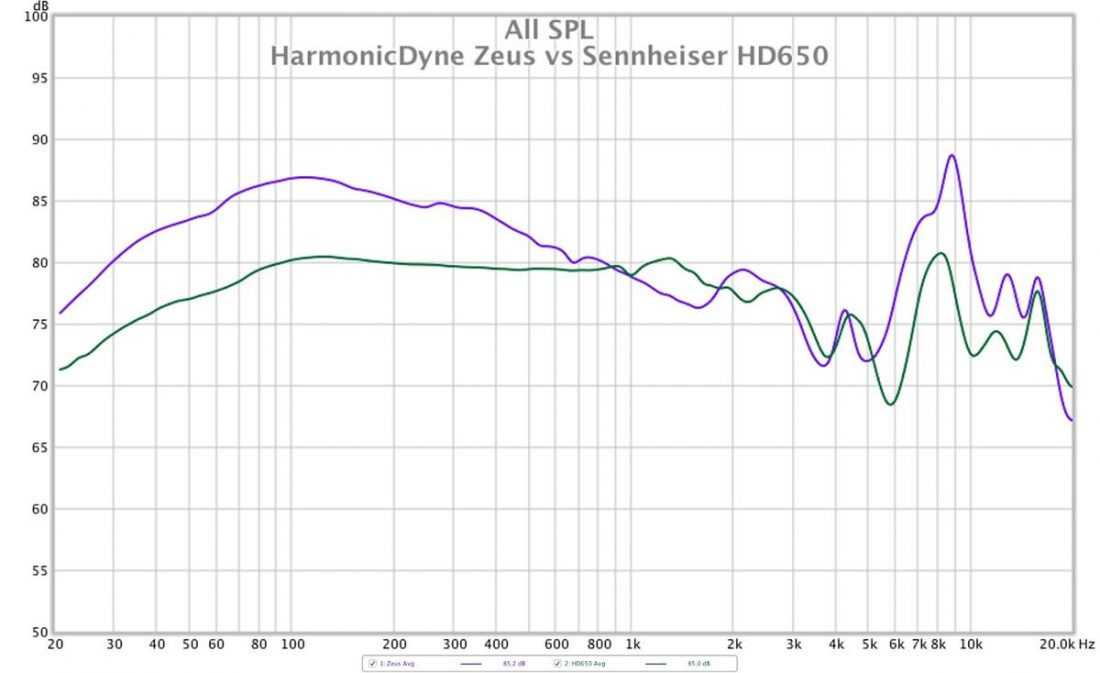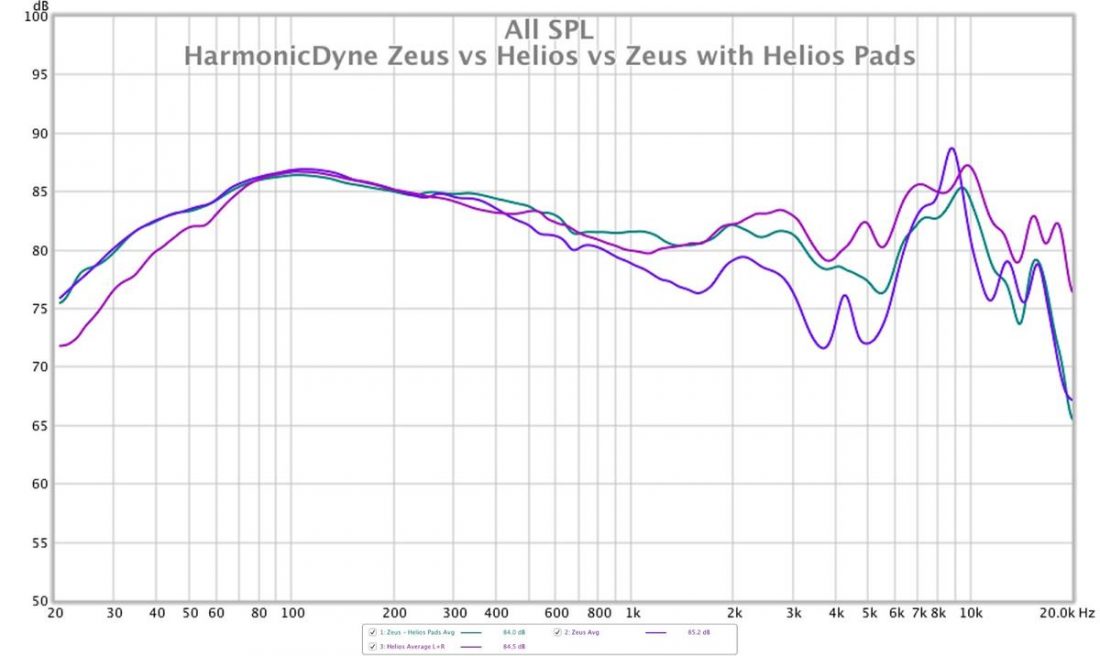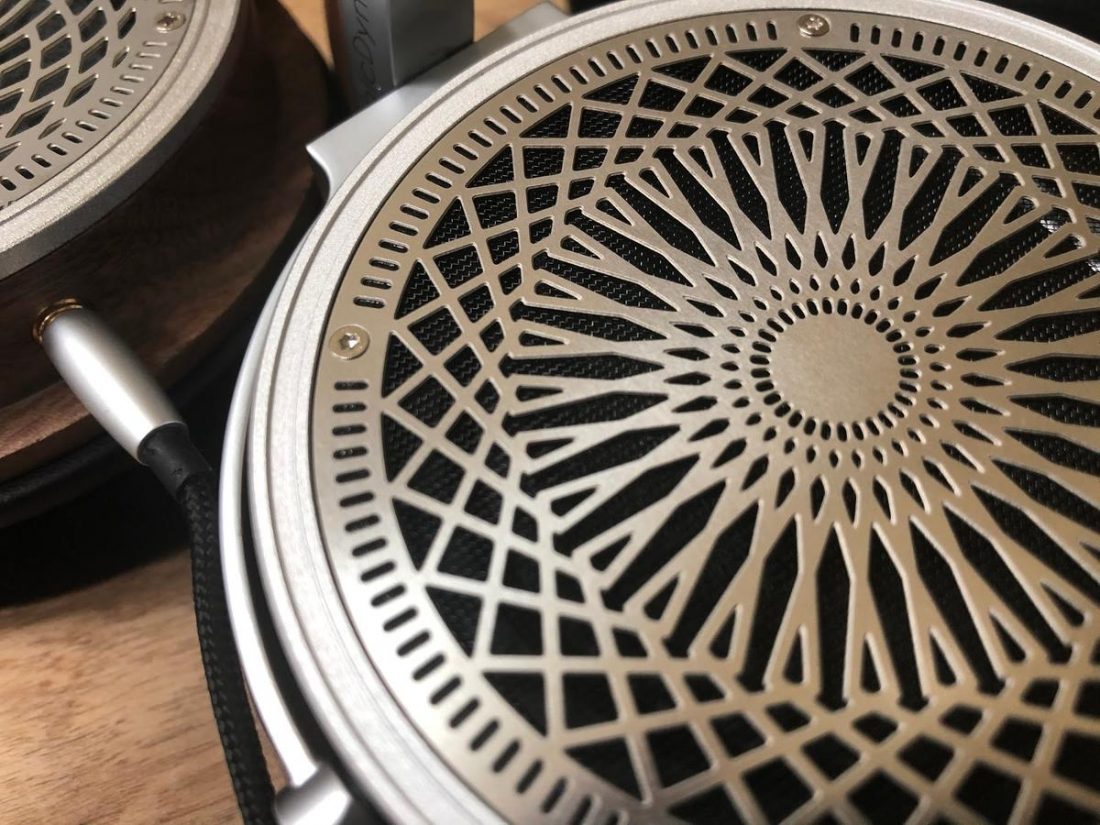About a year ago I reviewed the HarmonicDyne Helios headphones. Helios was the first product from HarmonicDyne, a brand-new company reportedly related to Thieaudio, which itself is the house brand for the Chinese headphone retail juggernaut Linsoul. The Helios are an attractive and distinctive headphone, marrying steel, aluminum, and walnut wood. They had an MSRP of $200 USD, but initially launched around $150 USD and offered a solid headphone option at this price point. I felt that the value proposition of the Helios was far better at the lower price point as the competition gets mighty stiff at the $200 price point. Now comes the second headphone from HarmonicDyne. Named after the ruler of all the gods of Mount Olympus. Behold, Zeus! And boy, Zeus looks familiar. There is no real magic going on here, but rather a successful formula at work. Vastly improved Chi-Fi manufacturing plus ever-escalating bang-for-the-buck, results in an unending flood of attractively-priced and good-sounding headphone audio products coming from China. The Helios is a solid offering, but I don’t feel they quite set an unimpeachable high-water mark.” – From my review. Back is the very same headband and cups. The Zeus is virtually identical to the Helios. That’s not to say that the Zeus is exactly the same as the Helios in all ways. With the Zeus, HarmonicDyne addressed some of my complaints:
I found the stylized skyline logo a bit large and busy looking engraved on the center of the Helios cup grills. The Zeus grills are updated in shape and do not feature the logo. The Helios earpads are large and round, but fairly shallow. If you are blessed with protruding ears, the Helios weren’t particularly comfortable for long listening sessions. The Zeus earpads are thicker and more comfortable. My initial impressions of the Helios were that they sounded bright, clear, and lively. However, with extended usage, they do suffer from a lack of natural midrange tonality. The Zeus does not sound the same (more on that later).
Unfortunately, HarmonicDyne did not resolve other concerns:
The Helios weighs about 360g and the combination of too tight clamping force and minimal padding on the inside of the headband is minimal and only just sufficient to support the weight. The Zeus ups the ante, and weighs approximately 410g without cables. The stainless-steel grills are close, but not quite a perfect match to the aluminum headband parts. The promotional photos minimize the difference in the colors of the metals, but it is noticeable when viewed in person. Reactions to the inclusion of wood veneer on the sides of the band are varied (and some folks feel it looks ‘cheap’) but I find it to be a decent match for the cups and fairly attractive.
So, the Zeus is ALMOST the same pair of headphones as the Helios. It appears all that HarmonicDyne has changed are: I wasn’t blown away at the value proposition of the original Helios. Now with a new higher price point, the Zeus has very big shoes to fill. Put mildly, the sound quality will need to be a significant improvement over the Helios to compete at this level. Let’s find out if HarmonicDyne learned from their first attempt and delivered the goods with their follow-up. By the Gods, I hope so.
Linsoul Company Overview
In their own words, “Linsoul was founded in 2016 by Crazy HiFi team with the intention of providing world class customer service to the audiophile and music loving communities.” They curate audio products from Chinese Hi-Fi (Chi-Fi) companies and provide customization services including custom-molded IEMs. I think it is important to note that the Story and Mission statements of Linsoul declare that they do not solely strive for products with the highest sound quality. Rather they refer to a combination of sound quality and visual style. It seems the aesthetic appeal of their products is as important as how they sound. The founder of Linsoul realized that Hifi music listening should be inspirational and modern stylish. It can be combined with sound quality and stylish to express your music style. MISSION To deliver Hi-Fi products that surpass the norm in terms of both Sound Quality and visual intrigue. – Linsoul
Zeus Specifications
Acoustic Architecture: Open-back Drivers: 50mm Beryllium dynamic drivers Impedance: 64 ohms THD: ≤0.2% (1000Hz, 254mW) Frequency Response: 10Hz – 40kHz Cable: Detachable, 152cm, Cloth Covered, 3.5 mm TRS and dual-mono 3.5 mm – MPS branded Weight: 410g (without cable) Wood: Walnut Warranty: 12 months
Zeus Packaging
The packaging is certainly one way that the Zeus distinguishes itself from other headphones. Gone is the standard cardboard box, and in its place is a big, black, foam-lined, plastic-bodied, metal-edged, hard case. It features two lockable latches and a sturdy plastic handle. The case makes an impressive statement. Based on looks, it contains nuclear codes, a variety of weaponry, or a SERIOUS pair of headphones. It’s a bit plasticky and gimmicky but a nice touch overall. Inside, nestled in the custom cut grey foam, you’ll find the headphones, a logoed metal plate with the headphone’s unique serial number, the case keys, and a black cardboard box containing the cable.
In the box
Zeus headphones with ear pads Detachable, 152cm, Cloth Covered, 3.5 mm TRS and dual-mono 3.5 mm cable Serial number plate
Cable
The new cable is also very impressive. It has the look and feel of an expensive upgrade cable. However, the composition of the cable is a mystery, as the information available is somewhat conflicting. It may be an OCC cable, but the 3.5mm jack is not balanced, so the validity of the listed information is circumspect. The name on the connectors is MPS, and I found very similar MPS cables on Aliexpress. For a cable terminated to match the included one with the Zeus, it is priced around $70 USD. I’ll let you try to decipher any further information from the writeup: Regardless of the inclusion of ‘Leopards’ or ‘Sword Tigers’, the MPS jacks feel extremely robust and of high quality, and the fabric wrapped flat cable is soft to the touch but somewhat stiff and inflexible. The HarmonicDyne logo is clear shrink-wrapped at the y-split. OD: 4*8mm ± 1mm cross-sectional area: 0.1mm⊃2;4 / 27AWG4”
Zeus Design
This section is going to be very reminiscent of my Helios review, as the basic design and materials of the Zeus are a recycle of the Helios. The walnut wooden cups are the standout feature and are smoothly and perfectly finished. It’s tough to decide whether the Zeus look truly upscale. The wooden cups, steel grills, and solid aluminum gimbals all feel premium. However, the interior sections of the band are plastic and are a bit creaky when flexed. The sliders work well and feel solid, but the thin wood veneer on the outside of the sliders seems to either be loved or hated. As noted in my Helios review, the laser-cut grill is similar in appearance to the ZMF Verite grill with a dark wooden surround. The fabric used under the grills is different between the two models, with the Helios fabric appearing to be more flat paper-like and the Zeus having a noticeable texture in the material.
Zeus Comfort
At over 400 grams (without cable), all that metal and wood adds up to a heavy headphone, especially for a dynamic driver. Unfortunately, the minimal synthetic leather padding on the bottom of the band isn’t quite sufficient to offset the weight. You certainly feel the weight after a long listening session. Clamping force is initially too high but easily stretched out by flexing the band carefully with both hands. One major comfort improvement over the Helios was implemented with the inclusion of thicker velour ear pads (2.55 cm vs 1.90 cm). The interior padding appears to be the same extremely soft memory foam. The thicker pads (while having an impact on the sound) improve comfort especially for those with larger or protruding ears. HarmonicDyne describes the ear pad material as “nano velvet” and I like the soft velour finish and find it less hot than leather pads.
Zeus Internals
The major change between the Helios and the Zeus hides inside. Although the 50mm drivers appear identical from the front, the technical specifications point out why the Zeus sounds so different.
Helios Drivers: German-made, 50mm custom composite dynamic drivers Impedance: 16 Ohms THD: <1% (1000 Hz, 1mW) Frequency Response: 10Hz – 40kHz Zeus Drivers: 50mm Beryllium dynamic drivers Impedance: 64 Ohms THD: ≤0.2% (1000 Hz, 254mW) Frequency Response: 10 – 40kHz
Gone are the “German-made” drivers, replaced with “Beryllium” dynamic drivers in the Zeus. Beryllium drivers, once only used in high-end headphones from companies such as Master & Dynamic, are now being seen used in fairly inexpensive products out of China. Beryllium is well regarded as having the right combination of weight, stiffness, and rigidity for headphone drivers. Beryllium’s low weight, but high stiffness, leads to accurate sound reproduction, with improved detail, quick attack, and low distortion. I can’t help but keep the cost of the Zeus in the back of my mind. They are approximately $170 more expensive than the Helios. If we accept that the cost of the case and new cable may add about $100 or so to the price tag, it would seem that the change to Beryllium drivers must account for the remainder of the price increase.
Chi-Fi manufacturing and OEMs
For those of us enthusiasts who read these sorts of reviews, it’s likely you have a few pairs of Chi-Fi IEMs kicking around, and you are aware of the incredible value proposition of modern Chinese made audio products. Most products from big name-brand audio companies are made in China (perhaps most notably in Shenzhen), and there is a plethora of engineering expertise, manufacturing equipment and raw materials all centralized there. Each necessary component is inexpensively available, and many new Chi-Fi companies simply mix and match components and design, with varying levels of audio quality as a result. The low-cost technological marvels found in many Chi-Fi IEMs is a direct result of this economy of manufacturing. All this means that similar (or the same) components show up in a variety of brand names and designs. I recently reviewed the relatively inexpensive Takstar HF 580 planar headphones, which share the same drivers with a few other headphones, some costing more than 3 times the price of the HF 580. If you have top-tier drivers and circuitry, your product will sound very good…” – The Verge The Zeus represents the opposite end of the spectrum. They share most of the same parts as their sibling Helios, and if you strip off the ear pads, it seems they share similar (if not the same) construction and components of several less expensive models from a variety of Chi-Fi manufacturers (most of which are no longer available for purchase). This includes models ranging from $30 PAIKESHI headphones, to the sub $100 BLON BossHiFi B6 and B7 models, the MSUR N650, as well as the SIVGA SV006 and SV007. All appear to use extremely similar driver and internal parts. Some of these inexpensive headphones even advertise Beryllium drivers! I’m very curious to listen to some of these sibling alternatives.
Zeus Sound
Here is where the rubber meets the road. It all comes down to how the Zeus sounds. I tried to pick out strong headphone examples of a similar price to compare A-B with the Zeus. Primarily, I compared the Zeus with the HarmonicDyne Helios, Sennheiser HD 650, Meze 99 Classics, and modified Takstar HF 580. Almost all these comparisons were done using the Chord Mojo DAC/Amp. The Mojo has two headphone outputs and volume matching is easily (and quickly) achieved by counting clicks on the volume buttons. The Zeus has an identical angled driver position as the Helios, and as a result, actually does have a decent soundstage and sense of space. Certainly, the sound is more spacious than my modified HF 580, which sound somewhat closed in by comparison. The resolution is good. Sounds of fingers on strings are textured and nuanced on the achingly familial captured beauty of “Domestic Eccentric” by Old Man Luedecke. Notes are presented with sweetness and clarity that feels ‘real’. If anything was surprising, it’s how different the Zeus sound to the Helios. They share so much, but sound signature isn’t one of those things. As seen in the frequency measurements, the Zeus have greater sub-bass, while the Helios are significantly more energetic above 1kHz through the treble region. Props to HarmonicDyne. The new drivers in the Zeus fix the unnatural midrange of the Helios. The in-your-face v-shaped sound signature of the Helios has been replaced with something far more neutral and relaxed. The Zeus are SMOOTH sounding, with rolled-off highs, a weighty midrange, and big deep bass.
Bass
This is a warm sounding headphone. The Zeus is biased towards the left of the frequency scale, away from treble, and weighted in the mid-range and bass regions. The Zeus are much warmer sounding than the HD650, which sound less engaging (at least when powered by solid-state amplification). The Zeus bass goes deeper, with far more visceral slam. Compared to the very low-end biased Meze 99 Classics, (as expected) the Zeus has less bass quantity, but I would not consider the Zeus bass-shy at all. They come across as brighter than the 99 Classics overall, but there is plenty of low-end thump for EDM or other low-frequency focused genres.
Midrange
The midrange is much more natural sounding to my ears than the Helios. While the Zeus doesn’t immediately jump out and grab you, these headphones sound excellent with male voices and acoustic music. The midrange is the biggest improvement over the Helios. There is an intimacy and a fullness here that really is great.
Treble
The Helios are sharper sounding with more sparkle and high-end energy. Going back and forth between them, the Zeus are far warmer and darker sounding. Once your ears adjust away from all the Helios energy, the Zeus’ presentation comes across as more natural. The Zeus treble is not all that different than with the HD650. Fairly laid back and relaxed. Treble-heads may be disappointed, but my ears would much rather be listening to this sound signature over the long term than to the Helios. I measured the Zeus with the thinner Helios ear pads installed to try to verify how much of a difference the new thicker pads are making to the sound. Midrange frequencies were all boosted significantly over measurements made with the thicker Zeus pads.
Zeus Conclusion
If you ignore the fancy new case and the impressive custom cable, does the Zeus offer compelling value for your purchasing dollar? The Zeus sound significantly better than the Helios. But… is that enough? If the Zeus were priced the same as the Helios, they would have been much closer to the giant-killers that were initially hyped. Frankly, I could do without the fancy case and cable if that would significantly lower the price. Both are nice but rather frivolous and not quite perfect. Clearly, it’s that darn price that I’m having a hard time getting over. I’m always invested in getting the most sound quality for my dollar, and I’m struggling with the Zeus’ value proposition. The HarmonicDyne Zeus uses parts recycled from other less expensive headphones. It’s fairly heavy and not the most comfortable for extended listening sessions. The build quality is a combination of excellent and just ok. But, the Zeus does sound really good. I’m just going to have to leave it up to you if you think that’s enough to make the Zeus worth the purchase.
